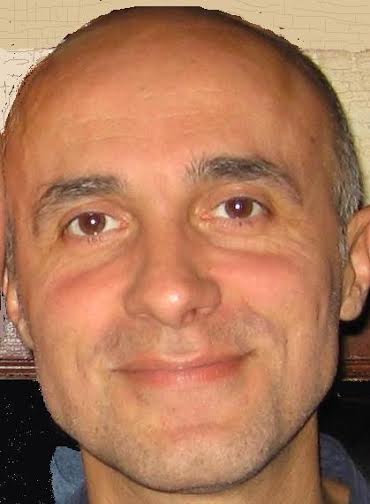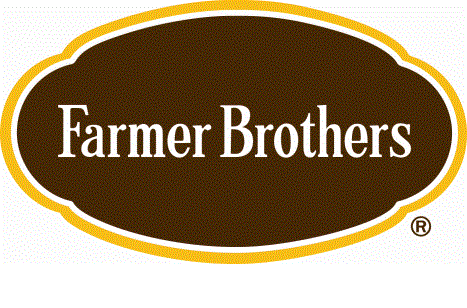COSA projects more than double in 2015-16 to meet the needs of increasing private sector demand to understand supply chain sustainability.
April 22, 2015 | By Daniele Giovannucci, President COSA
It still surprises me to see who is actually driving the accountability and performance of sustainability in agriculture. Although more public institutions such as the Ford Foundation, Inter-American Development Bank, and Swiss Government-SECO are getting keen on impact assessment, it is the private sector firms that are increasingly stimulating the demand to understand supply chain sustainability. We have more than doubled our number of annual projects in 2015-16 to serve these needs. Yes, bold perhaps, but we are confident that with our dozens of top-notch partners we continue to serve the growing demand for these assessment and management tools..
We explored this trend in recent discussions with world-leading firms. At McDonald’s, the fast food giant, shareholders and customers are asking for sustainability. Kelly Ludwig, Manager of their Strategic Supply Team told us that “Verifiable and measurable sustainability is integrated into how we measure supplier performance and every strategic sourcing decision.”
Mondelēz (formerly Kraft) is the world’s second largest buyer of coffee and is integrating well-defined sustainability metrics into its global procurement. From Malcolm Hett, Global Sustainability Manager for Coffee, we heard that “Transparent and science-based metrics are critical for our firm to ensure that our $200 million sustainability investments have the substantial impact we aspire to have.” Clearly, we have to better understand the return on investments that organizations make in sustainability.
There is clear value in “going beyond the talk” to actually operationalize data, according to Rachael Sherman, McDonald’s Director of Supply Chain Sustainability for the US. “Not only is it the only way to ultimately get assured supply, it has other tangible benefits as well in the human dimension and in our relationships with our suppliers. Sustainability is not a cost, it is an investment.” (See quick sampling of some current projects with Mondelēz, McDonalds, and others below).
So, it is quite possible that sustainability assessment will be one of the keys to competitive advantage for businesses in the coming decade. Let me know what you think about that.
With warm regards,


Daniele Giovannucci
President, COSA
Ethiopia, Honduras, Indonesia and Vietnam
COSA is organizing a multi-tiered program to assess and manage the global sustainability investments for Mondelēz, one of the world’s largest coffee companies. In four countries, we are engaging seven projects with local Implementing Partners that include ECOM, Simexco, ACOM, H.R. Neumann Stiftung, Indocafco, Honducafe, and Sogimex to integrate COSA Performance Monitoring with real-time management dashboards. This permits the partners in the “Coffee Made Happy” program to quickly respond to needs and identify best practices while the projects are still underway (not at the end). With our COSA partners, CIAT and IPSARD, we will also conduct complete Impact Assessments in select origins to substantiate the results and determine the return on investment (ROI) and how to improve program investment in the future.
Projects are adding COSA-supported metrics to meet the targets of Mondelēz’ Coffee Made Happy program. As it is rolling out $200 million dollars in investments to improve the sustainability, profitability, and attractiveness of coffee farming to future generations. With COSA Performance Monitoring in place, Mondelēz and the selected Implementing Partners will have the necessary tailor-made management tools at hand in order to better understand the outcomes for its core Key Performance Indicators (KPI) and thus more effectively manage for results.
Colombia
The international development agency Swisscontact is introducing the new COSA Performance Monitoring tool this year in order to collect and integrate data for faster management response into its innovative work in the Colombian cocoa sector.
Ghana
Lindt and Sprüngli, one of the most respected chocolatiers in the world, partners with COSA to advise and develop their indicators for long term monitoring and training guidance. Opting away from established standards or certifications, Lindt wants to take direct responsibility to ensure that cocoa is produced sustainably by their supplying farmers and to do so it wanted to use a globally-respected set of metrics that would ensure the completeness and accuracy of its understanding about its farmers’ sustainability.
Guatemala
It is well known that different farmer types will respond differently to the same intervention; so COSA segmented its analysis to help the Sustainable Commodities Assistance Network (SCAN) more precisely target particular interventions to the appropriate farmers. McDonalds restaurants in the US and Canada want to see how their investments make a difference for farmers in coffee growing regions of Guatemala, especially in light of the historic levels of disease pressures they face. McDonalds contracted with SCAN to create a local platform of leading institutions that collaborated on international-caliber training that respond to the knowledge gaps that farmers face. The final COSA impact study is currently underway to measure the actual effects of the trainings but also to gauge the difference between the training programs of the SCAN partners and control farmers who did not receive this specialized training.
One of the most interesting aspects of this program is the analysis by farmer type. COSA is helping SCAN to understand the most effective interventions based on results for farmers that are most typical of the majority of the country. In this case, for example, basic financial literacy may be one of the most useful skills imparted to poorer farmers who are just beginning to engage with credit and market transactions, while it would not be targeted to better-off farmers for whom it is largely ineffective at improving their capacity or livelihoods.
Indonesia
A COSA collaboration with the University of Sydney is pursuing key research initiatives of the Australian Centre for International Agricultural Research and the Indonesian government. The work integrates with a number of leading companies working in cocoa and coffee to provide assessment tools for smallholder livelihoods and sustainability.
India
COSA works with the Indian Institute of Plantation Management (IIPM) to establish locally-relevant measures of the impact of certification. In addition to supporting their use of good indicators and the approaches to field work – in this case assessing UTZ Certified – we will also collaborate with IIPM on the analysis of the data.
Kenya
After an extensive review, the ISEAL Alliance and COSA are now fully aligned on indicators. ISEAL is engaging COSA and its local partner (International Institute for Tropical Agriculture) to create a state-of-the-art evaluation design integrating mixed methods. With input from Howard White and the International Initiative for Impact Evaluation. it will evaluate the impact of different standards on poverty alleviation and pro-poor development among coffee farmers in Kenya. The approach benefitted from in-depth reviews with leading researchers for the best ways to understand the complex or “wicked problems” of mixed crop agricultural sustainability when many factors affect outcomes.
Uganda and Kenya
COSA is developing and will pilot test tools for understanding the sustainability of farmers and their food crops that are grown for domestic markets. This represents a significant shift away from commodities for COSA and is likely to be a major focus of upcoming work in a number of countries. The Ford Foundation is not alone in its interest in the sustainability of basic food systems and in better measurement and understanding of its investments in these areas. Livelihoods and food security are both often affected by the number of different food crops that are grown together with cash crops and it is necessary to understand their interactions in order to effectively determine the wellbeing and sustainability of a farm household.

Nicaragua
With Farmer Brothers, COSA and its renowned local partner, the International Center for Tropical Agriculture (CIAT) are implementing a highly functional approach to ensuring effectiveness, satisfaction, and return on investment (ROI) in supply chains. The innovative approach was pioneered by COSA, Farmer Brothers, and our Colombian partner CRECE. It starts with a rigorous initial assessment of the real issues in the community – viewed from the social, ecological, and economic perspectives. A discussion with coffee producers then ensures a mutual agreement on the priorities and the necessary steps. The commitment demonstrated by Farmer Brothers to its suppliers is powerful, inviting them to be a leading part of the solution as it contributes some of the funding and technical expertise to support their sustainability priorities. With good metrics that are locally agreed upon, all the parties participate openly in a transparent understanding of the outcomes. This occurs in real-time and allows rapid response to improve results and ensure mutual responsibility for the agreed objectives.
Peru
With funding from the IDB, COSA is working with local partners across Peru including the Junta Nacional del Café (JNC), more than 30 co-operative communities, and the various national partners of the SCAN platform (Solidaridad, Rainforest Alliance, IFOAM, FLO, and UTZ Certified) that are delivering a tailored set of training tools to the co-ops and the JNC. The approach is being tested to determine how well it builds local capacity and knowledge that forwards sustainable coffee approaches in Peru. The efforts challenge the status quo and explore an alternative to each NGO working on its own training tools and assessments.














